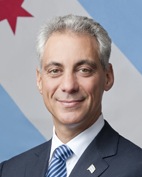SAN FRANCISCO — More than 750,000 DACA (Deferred Action for Childhood Arrivals) applicants have acquired approved employment authorization documents and are temporarily protected from removal.
But as of June 30, 2016, the U.S. Citizenship and Immigration Services reports that 7,941 approved DACA applications are from Filipino nationals who are now at risk of being deported if the Trump administration takes immediate action to revoke the DACA program.
“Jose” entered the United States when he was five years old. He does not remember the details of his family’s entry to the United States. He was not even aware that he was unlawfully in the U.S. until he applied for his driver’s license when he was 16 years old. He is now 25 years old and availed of the DACA program. When he applied for a job as a computer engineer inSilicon Valley, he was hired right away and has now been working for three years.
Realizing that President-elect Trump may take action on DACA after inauguration, he asked me about the risk of losing his employment authorization document and his state identification card. He was very emotional as he expressed his fear: “I do not want to be back to a situation where I have no legal document at all. Please tell me that they are not taking away my employment permit and IDs.”
At the present time, there is no definite response to Jose’s question. Although President-elect Trump seems to have softened his stance on young undocumented immigrants in one of his public interviews, there are no indications that he will continue the DACA program of his predecessor.
On the other hand, the DACA population’s supporters are increasing nationwide. Before the end of the Congressional sessions this month, a bipartisan bill called “Bar Removal of ImmIgrants who Dream and Grow the Economy” or BRIDGE Act was introduced by Senators LIndsey Graham (R-South Carolina) and Dick Durbin (D-Illinois).
DACA backers Sen. Dick Durbin, Sen. Lindsey Graham, Chicago Mayor Rahm Emanuel
This bill would allow eligible individuals the chance to apply for “provisional protected present,” which is a temporary protection from deportation similar to that provided by DACA. As part of the temporary protection, employment authorization will be issued to the applicants. The policy behind BRIDGE Act is to protect the investment that American communities have made in educating these young undocumented immigrants who were brought to the United States at a young age and who are currently eligible for Deferred Action for Childhood Arrivals (DACA).
Aside from proposed bipartisan BRIDGE Act, 14 mayors joined Chicago Mayor Rahm Emanuel last week in a letter to President-elect Trump seeking support for the DACA program. Included as signatories to the letter are mayors of cities who believe that DACA helps foster economic growth and enhances public safety and national security.
According to the Emanuel letter, “ Eighty seven percent of DACA recipients are employed with American businesses. Six percent of DACA recipients started their own businesses, higher than the American public (3.1 percent). All of these things translate into higher wages and better economic outcomes.”
Jose is one of the 87 percent of DACA recipients working for a U.S. enterprise and contributing to the US economy. Unfortunately, his fear of reverting back to his former status as an individual in unlawful presence without a valid identification is real; and, until there is certainty on the future of the DACA program, this population remains in limbo.
With a lot of support for the DACA population, the hope is that the incoming Trump administration would reconsider its anti-immigrant rhetoric during his run to the election and that the US Congress would immediately pass the BRIDGE Act.
Atty. Lourdes S. Tancinco is a partner at Tancinco Law Offices, a San Francisco based law firm and may be reached at law@tancinco.com, facebook.com/tancincolaw, www.tancinco.com or 1 888 930 0808.





